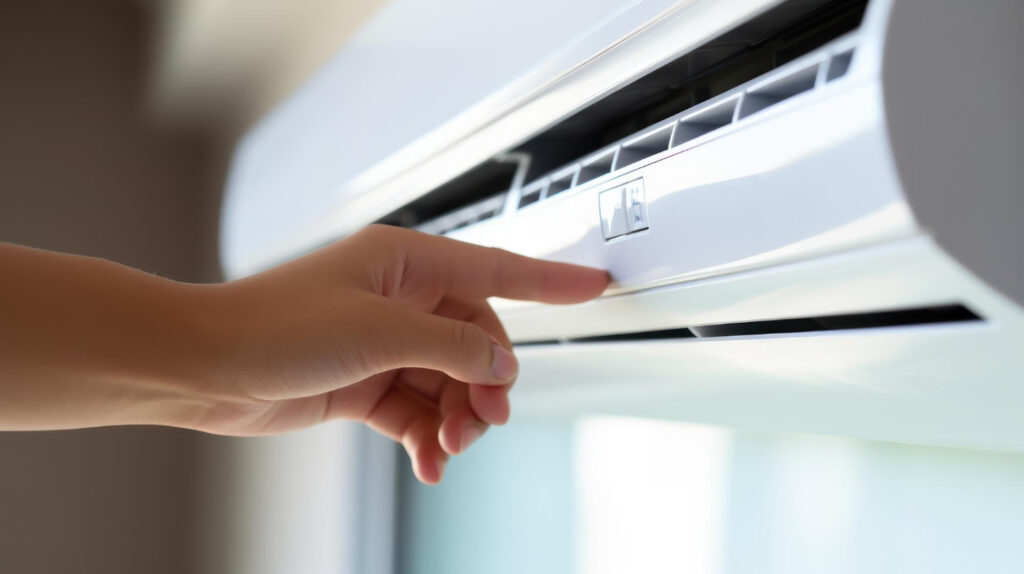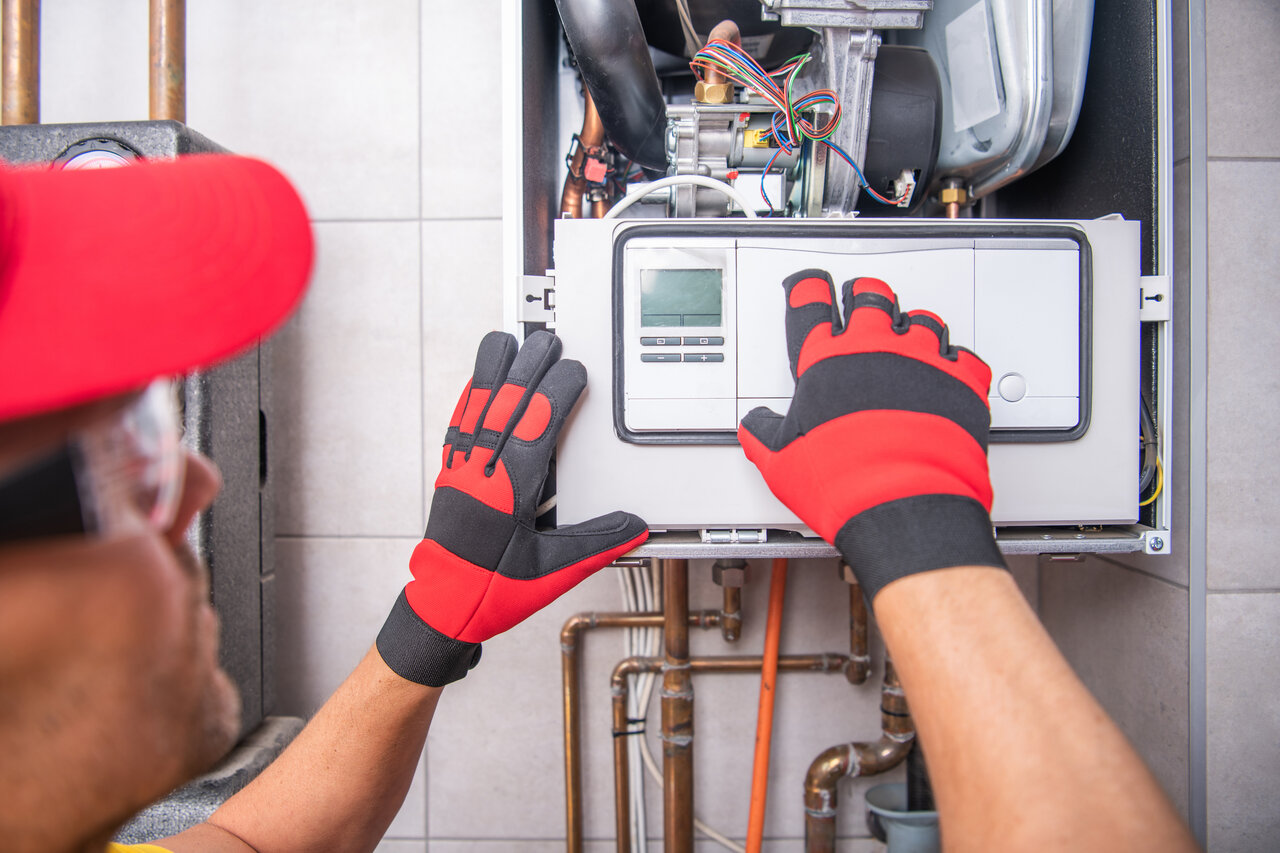During the summer in Chico, your AC has a big job to do. When it’s working the way it should, cool air flows through every room, bringing your home much-needed relief from the heat. But when something’s not right, especially if your system isn’t cooling like it used to, it could point to a bigger problem than just a dirty filter or closed vent. One important issue to look out for is a refrigerant leak. Most people don’t notice it right away, but it can lead to uncomfortable temperatures, higher electric bills, and possible damage to your HVAC system.
Refrigerant plays a central role in helping your AC cool the air. It moves through the coils and removes heat from inside your home. If this chemical starts leaking, the system can’t do its job properly. Understanding the warning signs of a refrigerant leak is key to acting fast before the issue affects your comfort or your budget. If you live in Chico and rely on your AC every day through the hot months, knowing what to watch for can save time and stress.
Common Warning Signs of AC Refrigerant Leaks
Refrigerant leaks aren’t always easy to spot, especially if you’re not sure what to look for. When left untreated, they can make your system work harder than it needs to, which shortens its life and leads to more breakdowns. Here are some signs that may point to a possible refrigerant problem in your AC system:
– Hissing or bubbling sounds: If you hear a hissing noise coming from your indoor or outdoor unit, it could be gas escaping through a crack or hole in your AC line. Bubbling noises sometimes happen when the refrigerant leaks as a liquid.
– Ice buildup on lines or coils: Ice forming on the refrigerant lines outside or on the indoor coil often means the refrigerant is low and not absorbing heat as it should. This cuts down the system’s ability to do its job.
– Weak or warm airflow: When your AC is running but the air coming out feels weak or lukewarm, low refrigerant might be to blame. It means your system is trying, but can’t pull enough heat out of your home.
– Extended cooling cycles: A system low on refrigerant might run for much longer than it should, trying to meet the temperature set on the thermostat. The longer it runs, the more energy it uses, without improved results.
– Higher electrical bills: If your bills have recently jumped but you haven’t changed your habits, your AC could be working overtime due to lost refrigerant.
Even if one of these signs seems minor, correct diagnosis is important. For example, a homeowner in Chico might ignore a soft hissing noise behind their AC cabinet until their system starts blowing warm air during a heatwave. That kind of delay often leads to avoidable damage and disruptions in comfort. These signs tend to get worse with time and can put your whole system at risk if left unresolved. An HVAC professional will need to confirm if refrigerant is leaking, find the location of the leak, and make sure it’s sealed and evaluated correctly.
Causes of Refrigerant Leaks
Over time, different parts of your AC system take wear from regular use. Small issues can build up and lead to refrigerant escaping from where it should be contained. Most leaks start small, which makes them easy to miss until something else isn’t working right. The following are the most common causes:
1. Normal wear and tear: Your AC runs daily through the summer, and even more so during heat waves. Over time, the vibrations, pressure, and use can wear down the components that hold refrigerant.
2. Corrosion on the coils: Moisture from the air or even cleaning chemicals near the unit can slowly corrode the copper lines. Once corrosion sets in, tiny holes may begin to develop along the coil’s surface.
3. Faulty connections or joints: Poor connections, often from original setup or previous repairs, can loosen over time. These joints need to be tight to handle the pressure of refrigerant moving through the system.
4. Physical damage: Anything from lawn equipment hitting the outdoor unit to pest activity around indoor tubing can cause unintended damage. Once the refrigerant line is cracked or punctured, the system can begin leaking very slowly or all at once.
Each of these causes affects how the refrigerant moves through the system. Once a leak starts, the AC unit will continue to operate, but with weaker results. The cooling process becomes more strained, and over time, it may start to affect other parts like the compressor. That’s why pinpointing the source and type of leak early helps prevent more damage later.
Health And Environmental Impacts Of Refrigerant Leaks
When refrigerant leaks into your home, it doesn’t just affect how well your AC cools the space. In some cases, it can also affect the air quality inside. Older refrigerants, especially, can pose health concerns if you’re exposed to them in high amounts. While most leaks aren’t likely to cause serious harm in the short term, it’s still possible to experience symptoms like headaches, nausea, or breathing trouble in more extreme cases, especially if the leak goes undetected and the area becomes poorly ventilated.
For homes with small children, seniors, or anyone with asthma or other breathing conditions, it’s particularly important to take potential leaks seriously. A home may seem comfortable, but if refrigerant is slowly escaping into the air, you could be breathing in more than just cooled air. Even though the cooling still works to some extent, exposure over time could increase discomfort or worsen symptoms for sensitive individuals.
Refrigerant leaks also carry environmental consequences. While today’s systems generally use more environmentally safe refrigerants than those from decades past, any leak still means that substances designed to stay sealed inside your AC unit are escaping into the environment. These chemicals don’t belong in the atmosphere, and frequent or ignored leaks can contribute to long-term damage if not addressed properly.
The most important takeaway here is that refrigerant leaks are more than a systems issue. They can affect your indoor air and the outdoor environment around you. That makes quick, professional attention important not just for your AC, but for the health of your household.
The Value Of Professional AC Maintenance In Chico
Hiring a professional to handle an AC refrigerant leak isn’t just about fixing the leak itself. It’s about making sure your cooling system is inspected from start to finish. When trained technicians evaluate your system, they look at everything that could affect performance, not just the spots where refrigerant may be escaping.
Routine inspections by our professionals help protect your AC from long-term damage by catching small problems before they turn into big ones. During a maintenance visit, our technicians can:
– Check refrigerant levels and pressure to see if any loss is occurring
– Inspect the coil, evaporator, valve connections, and compressor housing for signs of corrosion or loosened fittings
– Identify proper airflow levels and examine other AC components that impact performance
– Test for leaks using trusted tools and safe methods
– Recharge refrigerant and seal identified leaks if needed
By taking care of these tasks before problems escalate, your AC system keeps running better, longer. That means fewer surprises in the middle of a hot stretch and more confidence that your system will hold up under high demand. Many homeowners skip maintenance, thinking it’s only needed when something breaks. But leak inspections and tune-ups can actually prevent those breakdowns from happening in the first place.
Getting ahead of refrigerant leaks through regular checkups helps protect your comfort, energy use, and your whole cooling system. It’s one of the smartest steps a homeowner in Chico can take each summer.
Protect Your Comfort Before The Damage Spreads
When your AC in Chico starts showing signs of a refrigerant leak, every day you wait can take a toll on your comfort, your wallet, and the condition of your cooling system. If temperatures are rising and rooms aren’t cooling as fast as they used to, there’s a strong chance that refrigerant loss could be part of the issue.
Spotting these signs and taking timely action can help keep repair costs down and keep your system from working harder than it needs to. Whether you’ve noticed ice on the lines or just feel like your home isn’t cooling properly anymore, it’s worth having a trained set of eyes inspect the system before the problem spreads.
Regular inspections, seasonal maintenance, and fast response to potential leaks all play a big part in keeping your home cool and your AC running strong during Chico’s hottest months. Small details like hissing sounds or weak airflow might not seem urgent at first, but they’re often the start of bigger issues, and a little attention now can make all the difference later.
Regular care of your AC system can prevent further issues and maintain comfort during the summer heat in Chico. To keep your cooling system operating efficiently and safely, explore the benefits of AC maintenance in Chico with the trusted team at Feather River Aire, Inc. For a quick estimate or to book a service visit, please contact us today.





